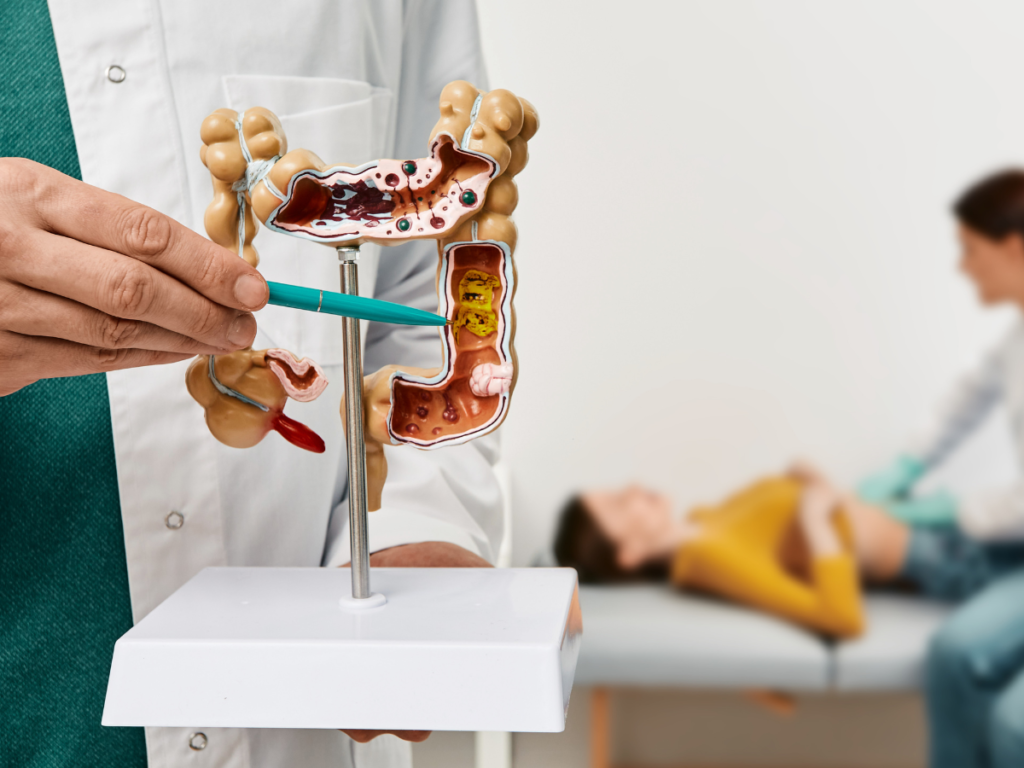Chronic indigestion, also known as dyspepsia, can cause persistent discomfort, impacting your daily life and overall well-being. Symptoms like bloating, nausea, stomach pain, and heartburn are often associated with indigestion and may disrupt your routine if left untreated. To ensure effective management, it’s essential to seek the guidance of a Gastroenterologist Specialist in Panipat, like the experts at Prime Hospital. Their in-depth knowledge and experience can help you manage chronic indigestion and improve your digestive health.
Here are some valuable tips from the Gastroenterologist Specialist in Panipat at Prime Hospital to help you manage chronic indigestion:
1. Eat Smaller, More Frequent Meals
One of the most effective ways to manage chronic indigestion is by adjusting your eating habits. Instead of consuming large meals, opt for smaller, more frequent meals throughout the day. Overeating can put pressure on your stomach and lead to indigestion. The Gastroenterologist Specialist in Panipat at Prime Hospital recommends eating five to six small meals instead of three large ones to help ease the digestive process.
2. Avoid Trigger Foods
Certain foods are known to trigger indigestion in individuals prone to the condition. Common culprits include spicy foods, fatty meals, carbonated beverages, and caffeine. These foods can irritate your digestive system and worsen symptoms. The Gastroenterologist Specialist in Panipat advises patients to keep a food diary to identify which foods trigger their symptoms and avoid them accordingly.
3. Eat Slowly and Chew Thoroughly
Eating quickly or not chewing your food thoroughly can lead to indigestion. Taking time to chew food properly and eating at a slow pace allows your stomach to digest the food more efficiently. According to the Gastroenterologist Specialist in Panipat, this simple adjustment can significantly reduce indigestion symptoms.
4. Stay Hydrated
Water is essential for good digestion. Drinking enough water throughout the day helps break down food and absorb nutrients. However, avoid drinking large amounts of water with meals, as this can dilute stomach acid and impair digestion. The Gastroenterologist Specialist in Panipat recommends sipping water throughout the day and limiting it during meals.
5. Manage Stress
Chronic stress can exacerbate digestive issues, including indigestion. High-stress levels can lead to increased stomach acid production, which irritates the stomach lining and causes discomfort. The Gastroenterologist Specialist in Panipat encourages stress management techniques such as meditation, deep breathing exercises, yoga, and regular physical activity to reduce the impact of stress on your digestive system.

6. Maintain a Healthy Weight
Excess weight, especially around the abdomen, can put pressure on the stomach and worsen indigestion symptoms. Losing weight through a balanced diet and regular exercise can help alleviate the symptoms. The Gastroenterologist Specialist in Panipat advises incorporating weight management strategies into your daily routine to reduce indigestion.
7. Avoid Smoking and Alcohol
Both smoking and excessive alcohol consumption can irritate the stomach lining and increase the risk of indigestion. Smoking weakens the lower esophageal sphincter (LES), which prevents stomach acid from flowing back into the esophagus. Alcohol can also increase stomach acid production. The Gastroenterologist Specialist in Panipat strongly recommends quitting smoking and limiting alcohol intake to manage chronic indigestion effectively.
8. Elevate Your Head While Sleeping
For individuals who experience indigestion symptoms at night, elevating the head of the bed can prevent stomach acid from flowing back into the esophagus. The Gastroenterologist Specialist in Panipat suggests using pillows or a wedge to prop up the upper body during sleep to reduce nighttime indigestion.
9. Over-the-Counter Medications
In some cases, over-the-counter antacids or medications like proton pump inhibitors (PPIs) can provide relief from indigestion symptoms. However, it is important to consult with a Gastroenterologist Specialist in Panipat before using any medication regularly. Self-medicating without proper guidance may worsen symptoms or cause side effects.
10. Seek Medical Attention for Persistent Symptoms
While occasional indigestion may not be a cause for concern, chronic or severe indigestion could indicate an underlying health condition. If your symptoms persist despite lifestyle changes, it’s essential to consult a Gastroenterologist Specialist in Panipat at Prime Hospital. They can conduct a thorough evaluation, recommend diagnostic tests like endoscopy, and provide personalized treatment plans to address your specific condition.
11. Focus on Gut Health
Maintaining a healthy balance of gut bacteria is crucial for optimal digestion. Probiotic-rich foods such as yogurt, kefir, and fermented vegetables can promote healthy gut flora. The Gastroenterologist Specialist in Panipat recommends incorporating these foods into your diet to support digestive health and manage chronic indigestion.
12. Eat at Consistent Times
Establishing regular eating patterns can aid digestion. Irregular meal times can disrupt the digestive process, leading to indigestion. The Gastroenterologist Specialist in Panipat advises sticking to a regular eating schedule to help your digestive system function smoothly.
Conclusion
Chronic indigestion can be frustrating, but with the right strategies and guidance from a Gastroenterologist Specialist in Panipat, it can be managed effectively. By making small changes to your diet and lifestyle, you can reduce symptoms and improve your overall digestive health. The expert team at Prime Hospital Panipat is dedicated to helping patients overcome chronic indigestion and achieve lasting relief. If you’re struggling with indigestion, don’t hesitate to schedule an appointment with a Gastroenterologist Specialist in Panipat today for a thorough evaluation and personalized treatment plan. Your digestive health is in good hands at Prime Hospital.
